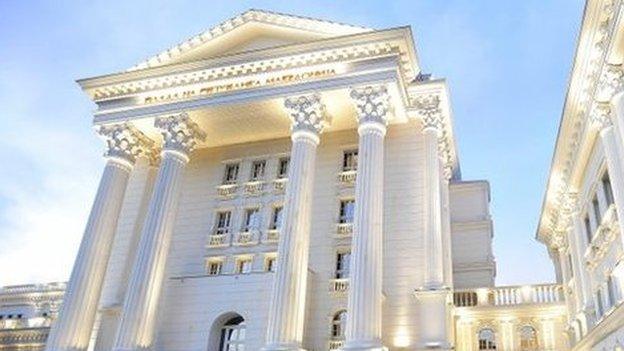Macedonia parliament: Police rebuked by interior ministry over chaos
- Published
A brawl broke out when protesters stormed the parliament in Skopje.
Macedonia's interior ministry says police were partly responsible for a mass brawl that erupted inside and outside parliament on Thursday.
Interior Minister Agim Nuhiu, an ethnic Albanian, says he will resign.
More than 80 people were injured, including 25 police officers and three MPs. Protesters beat up MPs who had elected an ethnic Albanian as speaker.
Russia has accused Western countries of conniving with alleged opposition plans to create a Greater Albania.
Social Democrat leader Zoran Zaev was among those injured. After elections in December he formed a coalition with two parties representing ethnic Albanians. But President Gjorge Ivanov opposes it, and politics is deadlocked.
Ethnic Albanians make up around a quarter of the country's population.
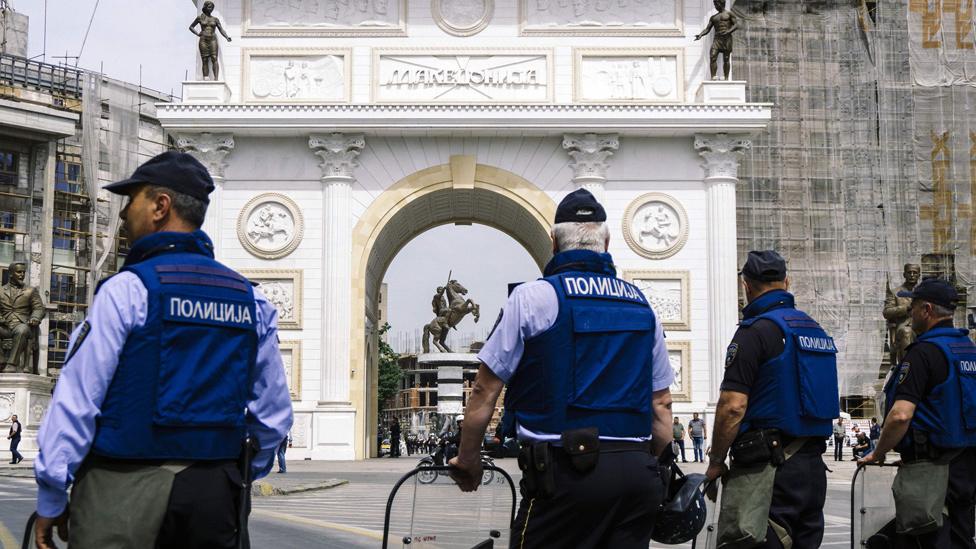
Security was stepped up around parliament in Skopje on Friday
Mr Nuhiu said "certain police structures" had not done their job on Thursday and "must be held responsible".
There have been nightly protests by nationalist demonstrators backing the conservative VMRO party of former Prime Minister Nikola Gruevski.
He condemned the violence but said protesters had been provoked by the election of Talat Xhaferi as speaker.
The crisis goes back further, to a phone-tapping scandal two years ago.
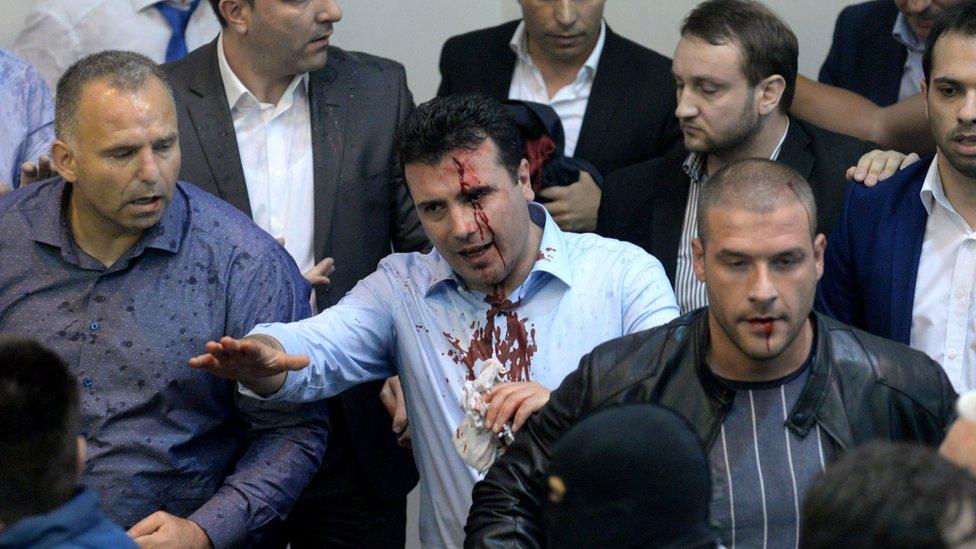
Social Democrat leader Zoran Zaev was among those injured after a fight broke out
The nationalists fear moves to improve the status of Albanians threaten Macedonian unity.
Some of the 200 protesters were masked. Police fired stun grenades to disperse them and allow politicians to exit the parliament building.
Macedonia came close to civil war in 2001 after an Albanian uprising.
Macedonia is stuck in a big mess with no obvious means to get out, BBC Balkans reporter Guy De Launey says.
Thursday's violence has set back hopes of reaching a political deal and forming a functioning government, he adds.
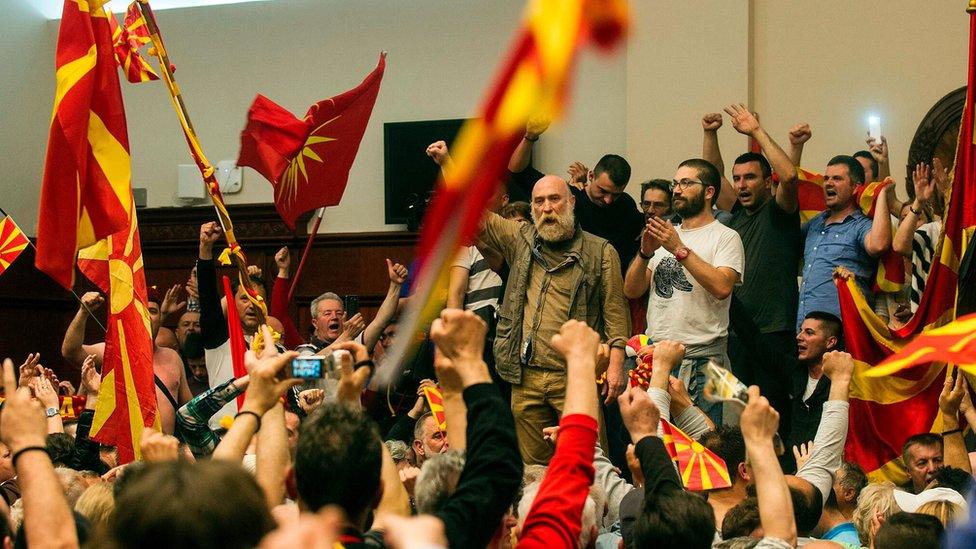
Many of the protesters brought Macedonia's national flag
International concern
A statement from the US embassy in Macedonia, published on Twitter, said: "We condemn the violence in the strongest possible terms.
"It is not consistent with democracy and is not an acceptable way to resolve differences."
The secretary general of Nato, Jens Stoltenberg, tweeted that he was "shocked" by the "attacks".
"All parties should respect democratic process and engage in dialogue, not violence," he wrote.
"Violence has NO place in Parliament. Democracy must run its course," tweeted European Union Commissioner Johannes Hahn.
Russia's foreign ministry said the parliamentary speaker's election had been basically an attempt "to seize power... in violation of established procedures".
It accused EU and US officials of "blatant interference" in Macedonia's affairs. "The West is obviously pandering to the advocates of a Greater Albania," it said.
A Macedonian political commentator, Sasho Ordanovski, told the BBC that Russia was not orchestrating the chaos but "using the Macedonia crisis... to make the West spend its resources".
He dismissed the "Greater Albania" notion, saying "the region is totally pacified compared to 25 years ago".
- Published10 June 2024
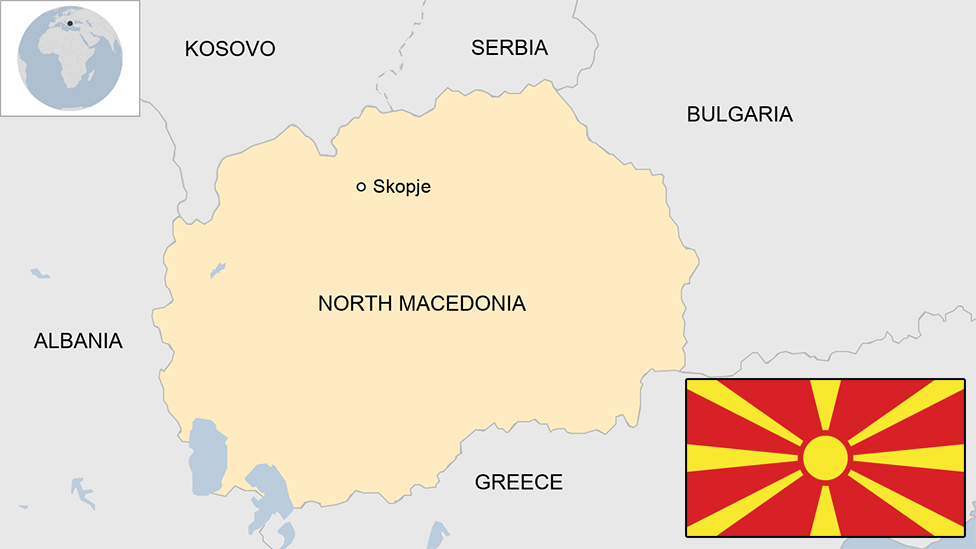
- Published1 March 2017
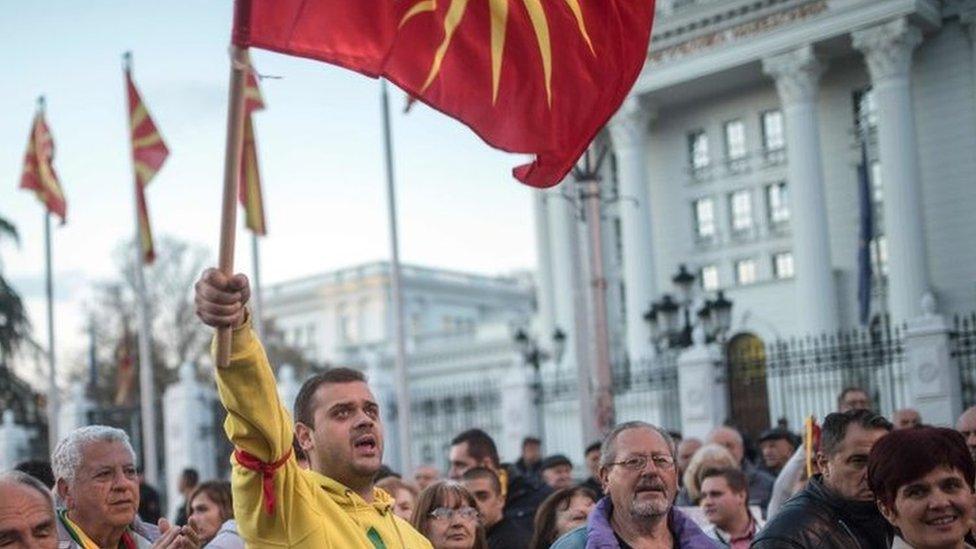
- Published2 June 2015
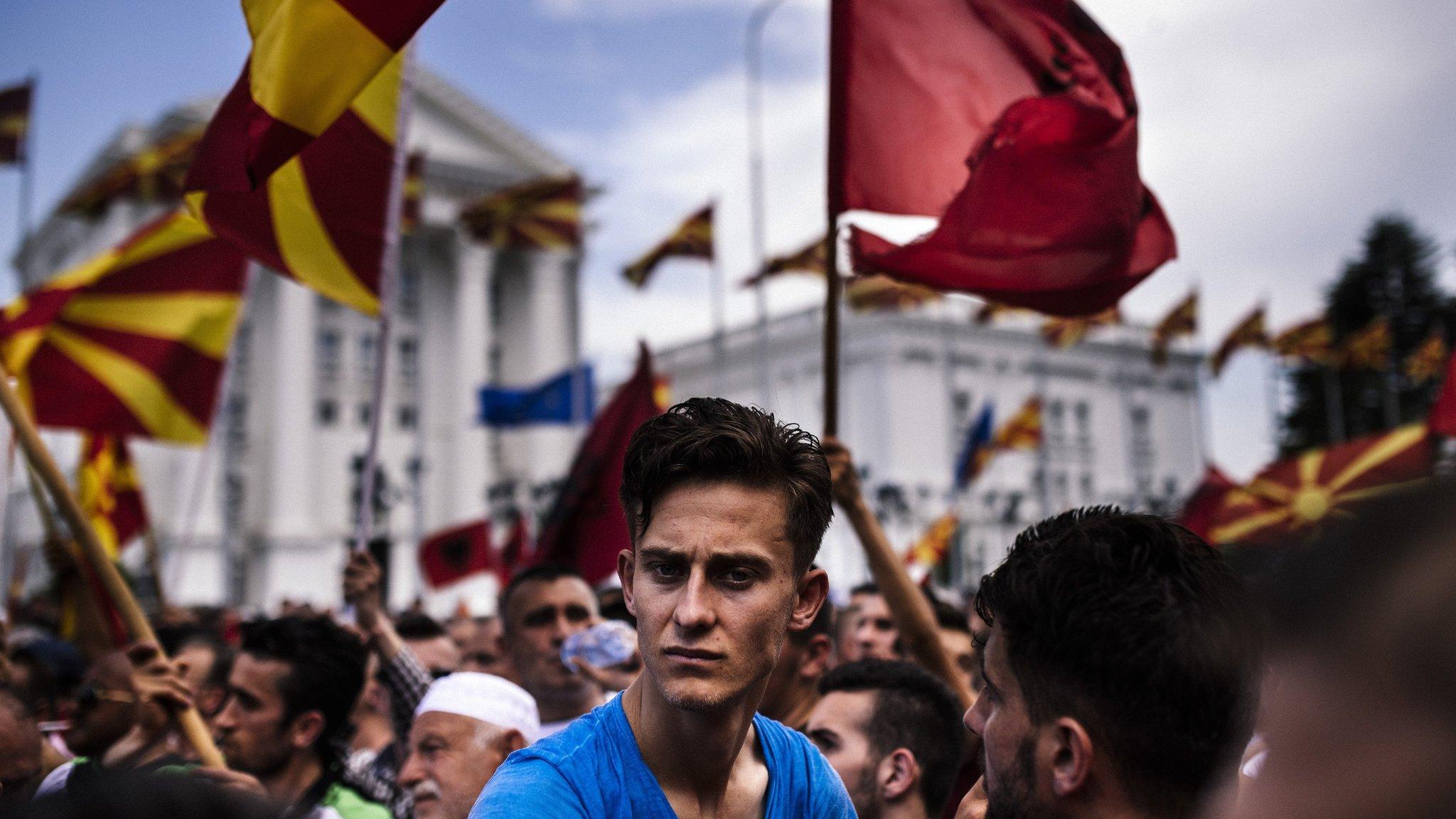
- Published13 May 2015
